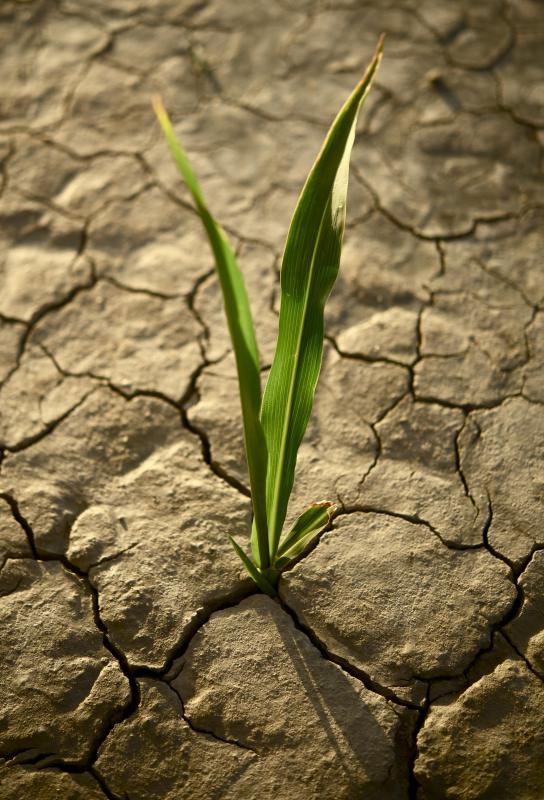At HomeQuestionsAnswered, we're committed to delivering accurate, trustworthy information. Our expert-authored content is rigorously fact-checked and sourced from credible authorities. Discover how we uphold the highest standards in providing you with reliable knowledge.
What is Drip Irrigation?
In today’s world of rotating yearly droughts and concern for water conservation, drip irrigation may be one of the best methods for watering lawns, gardens, and flowerbeds. A well-designed drip irrigation system assures minimal water loss from evaporation. In addition, a drip irrigation system helps guarantee most of the water goes where it is intended rather than running off into the city sewer system.
Another advantage to creating and maintaining a drip irrigation system is that it controls the amount of water making contact with crop leaves, stems, and fruit. This ensures diseases do not set in from a moist environment. It also protects the fruit from becoming wet. If fruit gets wet and is hit by direct sunlight, it can lead to rapid fruit rot.

For a homeowner, it is usually best to bury the drip irrigation system below the surface dirt. This protects it from animals, yard workers, and others that may walk through the area. This drip irrigation method is beneficial because it exposes the root system of the plant directly to water rather than waiting for the water to soak through the surface dirt. This direct soaking method is particularly beneficial during periods of dry weather.

In larger settings, such as farms, a drip irrigation system can make it easier to use agricultural chemicals. Since agricultural plants are typically sprayed above ground while the watering system is below, leaching of fertilizer can occur. Changing over to drip irrigation can be costly, but it can pay off in the long run.
Drip irrigation is also a good choice when the fields are oddly shaped or the landscape is uneven. With a conventional irrigation system, it is difficult to reach all areas of an uneven field. Drip irrigation controls water throughout the area and can be set to create very little run off and almost no pooling.

A drip irrigation system can also be automated. This option is selected more often by farmers in order to help during drought situations. With an automated drip irrigation system, farmers are able to control the amount of water they use at specific times. This ensures the crops are never over watered or watered when the sun is high in the afternoon sky, which risks “burning” the crops.
AS FEATURED ON:
AS FEATURED ON:













Discuss this Article
Post your comments